#legit essay
Explore tagged Tumblr posts
Text
Odo, the most allo-ace bastard
I don’t know how many people asked for Odo to be in the allo-ace folks competition, but I was on the list. Now that we're here I refuse to let my blorbo lose to Spongebob.
Is Odo Alloromantic?
Odo has three main ships- Quark (headcanon) Luxwana (canon supported) and Kira (canon endgame)
Quark and Odo have a Wiley Coyote/ Road Runner-esque relationship. The comedy! The drama!
(episode antagonist) "I can't believe you're defending him, Quark. You're his worst enemy."
(Quark) "I guess that's the closest thing he has in this world to a friend."
Luxwana and Odo are basically canon qpr. They had a brief marriage of convenience where Odo was forced by plot to give a meaningful declaration of love. At the end they get a divorce, because although Odo did love Luxwana, he didn’t love her the way she needed and Luxwana didn't want to end up hating him. A gap in intimacy ending a relationship between asexual and allosexual partners is a deeply the vibe.
Kira and Odo date for a bit over a season. Odo was pining for her for most of the series. Their history was deep and complicated and lovely. So it is at least cannon that Odo has romantic interest sometimes, but I will admit that a demi-romantic reading of Odo also has some cannon support.
(Odo) “I'll never understand the humanoid need to... 'couple.”
But is Odo Asexual?
So this is a matter of interpretation. To start with, Odo is space goo. His whole species is space goo. I don’t know how this space goo replicates, but I can tell you that it probably doesn’t look like humanoid sexual reproduction.
When Luxwana’s Betazoid sex fever makes the station horny, Odo is immune. Not because he can’t get sick; the horniness is a psychic projection. Not because he’s immune to psychics (unlike data), Luxwana can read his mind. Odo just doesn’t get horny. And this is after Odo’s crush on Kira is established.
Changelings, Odo’s space goo species, do have something called “the great link” which is apparently a very pleasurable experience for the Changelings involved. Odo does experience “linking” and definitely got something out of it. So that is a kind of pseudo-sexual relationship.
Odo also exists as a human for a brief period of time (between 3 to 11 months, Star Trek time scales are weird), and never pursues a relationship when he could have sex the humanoid way. He wasn’t into it as a solid.
So then we get to his relationship with Kira.
One, it’s not clear that Odo and Kira have sex. They touch, they kiss, but in the entire season long relationship, Odo and Kira never fade to black. This is interesting because the characters in this show do have sex. Like, this show is really clear about this, but it seems that Kira and Odo don't.
And 2, even if they did, Odo and Kira would not be having identical experiences of arousal. This dude has no sense of smell or taste. He doesn’t have organs.
Yet, Odo and Kira are both happy and satisfied in the relationship. When fate tears them apart in the last episode (Odo had to go save his species from extinction) it was portrayed as difficult and tragic. The lack of traditional sex did not make their relationship less valid.
Odo also has a notable sexual encounter with a humanoid named Arissa. The experience was great for her, and Odo didn’t mind, per say, but the experience wasn’t the same for him as it was for her. Whatever sex is for changelings, that’s not what he has with humanoids. That has the vibe of an Allo-ace who is not sex repulsed. Odo shows how an alternative experience of sexual attraction is not the same as being incapable. During the pillow talk, Arrssa has the airy, exhausted affectation of a person who just had sex. Odo doesn’t. Odo is just glad to know he did a good job.
I will not say that Odo is unproblematic. He is a cop and a bastard. He is yet another example of asexuality being inhuman. But he is also complicated and interesting. As a product of the 90’s Odo is an icon of Allo-Ace identity. Importantly, his romantic and sexual orientation informs and influences his character, but it isn't his defining trait either.
#alloacefolkscompetition#star trek#ds9#star trek ds9#star trek deep space 9#odo#odo ds9#odo ital#asexual#asexuality#alloace#aspec things#kira nerys#kira ds9#go mall cop go!#long post#legit essay
16 notes
·
View notes
Text

Yeah, that about sums it up.
#in stars and time#in stars and time fanart#isat#isat fanart#isat siffrin#isat loop#sifloop#lucabyteart#me writing some of the most basic and not-a-new-concept dialogue possible: yeag ill finish this someday. maybe.#me realising the anniversary is soon: wait. extremely on the nose conclusion-of-an-essay ass dialogue is PERFECT for an anniversary piece#anyway happy birthday you fucking video game. christ. jesus christ. what the fuck happened. why have i drwawn these fucking things so much#adrienne what do you fucking Do to Me. what the Hell. thanks . i know how to draw comics now. legit. thanks but what the hell dawg#anyway no i dont know what the posing is on this theyre just kind of crumpled together. wasnt supposed 2 b a kiss because i dont think#that that fucker gets mouth privileges but like idk go nuts man. is this during canon? postcanon? some other shit? idk. your call#the world is yourrrrr oyster (this is my way of saying im hells of busy and am going back to neglecting everyone who followed me for this#specific weirdass ship content. bye. im dyig out there.)
985 notes
·
View notes
Text
dandadan episode 7 moodboard









#WHAT THE FUCK?????#like iknew it was gonna be good based on the second half of episode six but like#acro silky deserves better in this essay i will#i was legit sat staring at the screen /srs crying#dandadan
202 notes
·
View notes
Note
Matching pyjamas mayhaps?:3

#bsd#bungo stray dogs#bungou stray dogs#bsd dazai#bsd chuuya#bungo stray dogs dazai#soukoku#skk#my art#bsd art#Ngl this looks like loungewear I think lmao im sorry#I legit looked up pajamas and then i was like…hmm#on my first attempt it did look more like pyjamas I promise#the height difference is not accurate SHHH im sorry by the time I ‘realized’ I got too lazy—-#every time I post I hope things dont look over saturated I fr dont know#I stare on different devices sometimes to check but#this i what I get for posting late instead of sleeping#what sleep#I am going to be so tired tomorrow *rambles in tags*#I read my tags later on and wonder why did I write an essay
168 notes
·
View notes
Text
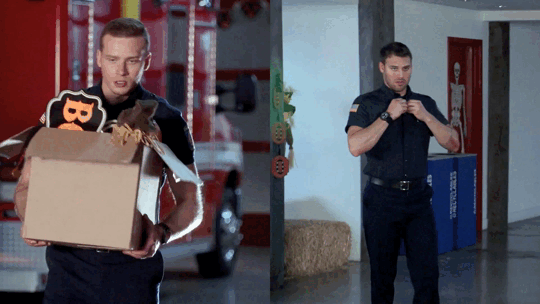
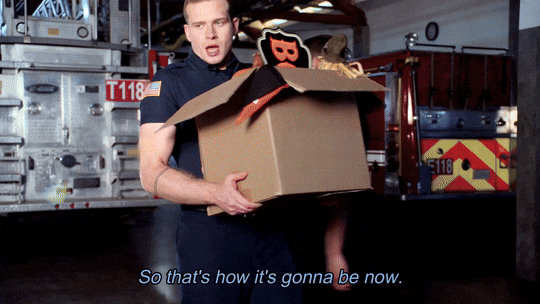
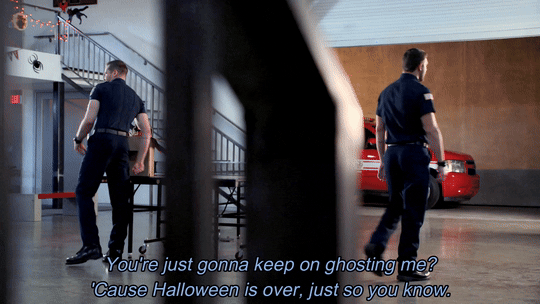
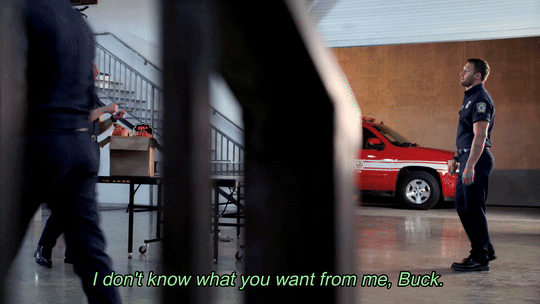
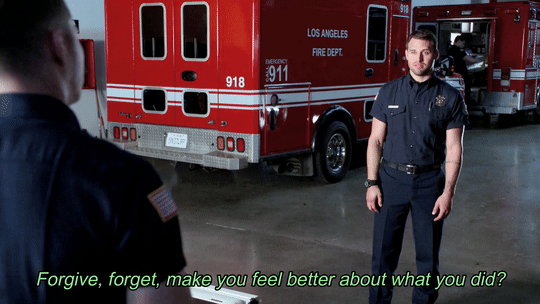


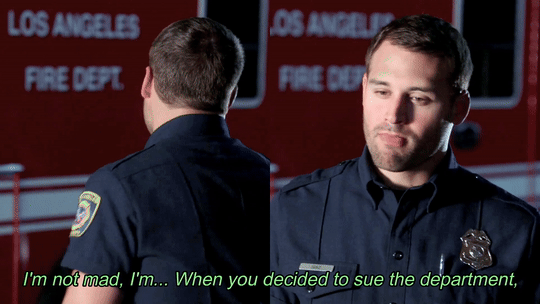
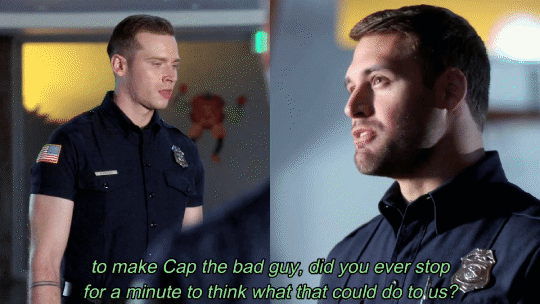
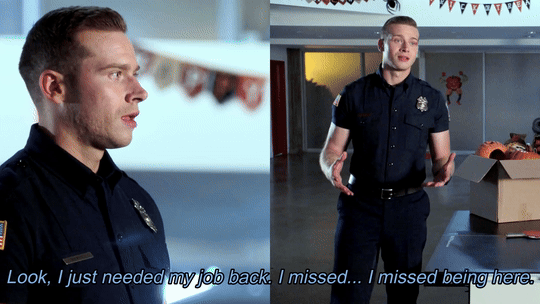

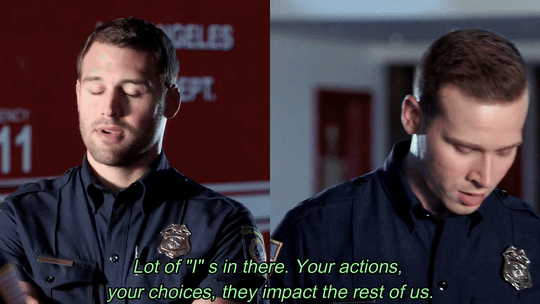

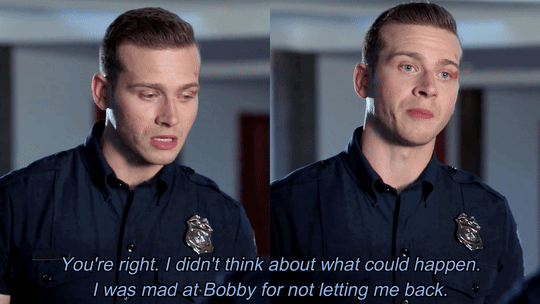
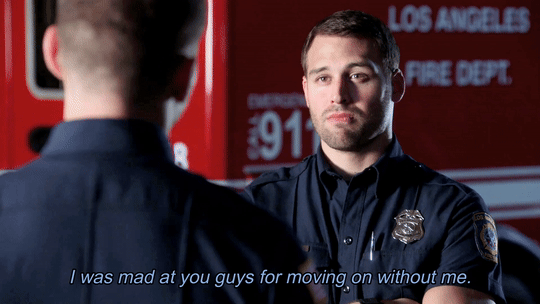




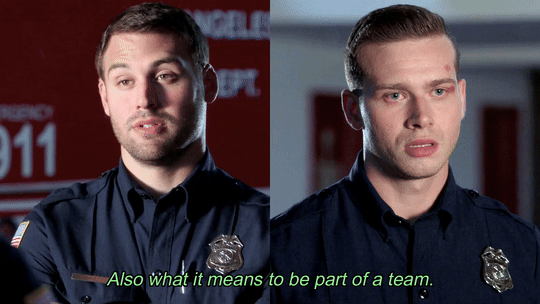
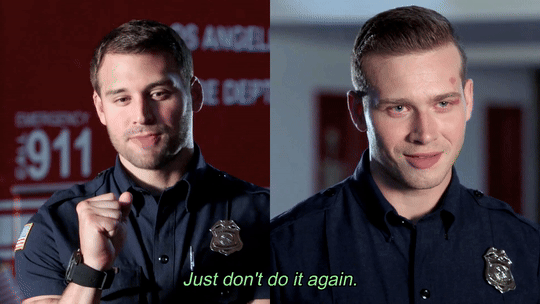
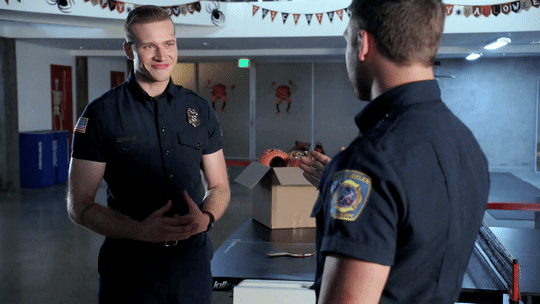
Buddie Countdown to Season 7:
17 days.
#911#buddie#911edit#buddieedit#911 on fox#911 fox#911 abc#evanbuckleyedit#eddiediazedit#my edit#buddies7#911hiatus2023#otp: you don't need to pretend with me#usercam#buddie scenes#oh i could write essays about this scene alone#every aspect of it is so intentional it makes me want to scream#the framing the wording the back and forth where we are getting their reactions to what the other is saying#the way its a literal representation of the conflict between them#like legit even the way they are shown in the frame in specific points says so so so so so much#ugh#let them fight again please#a make up scene between them now would be SO GOOD#911verse#evan buckley#eddie diaz
263 notes
·
View notes
Text
I still think about how Leo’s ideal day out for the fam’s venture into the Hidden City was basically just an effort to get some rest and relaxation because boy does he never get that ever.
#rottmnt#rottmnt leo#rise of the teenage mutant ninja turtles#Leo is that one kid who’s like yeah dude I’m chill I’m laidback#and on the inside he’s just in a constant fetal position rocking back and forth#at least the others got a good amount of time spent in Tahiti but Leo’s out here like please god just one spa day 🙏🙏🙏#no but tbh? it’s genuinely a great look at Leo’s character that he wants to go to a spa to basically just sleep in the sun#it’s not bombastic or flashy or anything he legit just wants a good place to get proper rest and care#that hair spa can catch these hands LET MY BOY HAVE HIS SPA DAY 🔪#HONESTLY EACH PERSON’S CHOICE OF WHERE THEY WENT FOR THEIR DAY OUT SAYS A LOT#like raph wants to emulate who he perceives as those in justice in a desire to become more like the hero he so desperately wants to be#leo goes off on his own in order to let his guard down and actually rest for more than a lackadaisical facade#donnie goes with april not only to salvage his pride and condemn magic but also to hold onto his self worth and genuinely help out#and mikey thrives in family and specifically the harmony within family and how that is portrayed through the act of simply being together#in this essay I will-
471 notes
·
View notes
Note
also their aesthetics arent punk! could u please look into other punk music, and especially smaller bands- mcr didnt fit in with punk music because of the performance and over the top aspect they often had!
Ah yes,punks,infamous for not being over the top with their music and aesthetics
#BRUH😭💀#you CANNOT be serious and i ain't reading that legit essay you typed in before this so i deleted it#also why the fuck are you telling an afropunk to 'listen to other punk bands espe smaller bands' i'm literally a meet me @ the altar stan#and i listen to alt black era and x-ray spex and the muslims too.are those niche enough for your undoubtedly nonblack hipster ass#also again.they hate the emo label they've said so MULTIPLE times they aren't fucking emo GET OFF THEIR DICKS#anonom#mcr#my chemical romance#gerard way#ray toro#mikey way#frank iero#💌#askies#'their aesthetics aren't punk'have you not listened to danger days/watched the mv's.does mike milligram/party poison give 'emo' to you#pastel punk tag
32 notes
·
View notes
Text
The Mephadow crumbs from Shadow Generations still make me insane
Like Shadow is going through one of those moments (what will become lowkey routine by the time he's faced with infinite) where someone who's fighting him and is actively his enemy seems to know him and be obsessed with him. And not only does he not know who this bitch is, he doesn't like him and doesn't enjoy being fixated on. On top of that, even if he DID remember him he'd still be opposed to him.
Meanwhile you have Mephiles who (despite having actually liked Shadow) is fighting for his right to exist again. And you know it would be okay enough if his thirst to exist makes it easy for him to forget how he felt about Shadow, or if he turned to revenge again after what happened in Sonic 06. But nope! Yeah he's fighting Shadow desperately for his right to exist, but he fuckin. He offers to spare Shadow. He's fighting him because he has to, but he still wants him if he can have him.
So imagine being Shadow like "Who tf is this guy and how does he know me", and then Mephiles who was just thinking "maybe this is some joke of fate. It is my second chance" and is now crying internally because Shadow "forgot" him again
Mephiles: So we meet again, Shadow!
Shadow: Who tf are you. Whatever. I'll beat your ass
Mephiles, internally: 🥲 Again?
Mephiles, externally: So you've forgotten me again, have you?
Mephiles, later: I might consider sparing you, you know
Shadow: Ha. No.
Mephiles, externally: Oh, Shadow, how disappointed I am. Truly disappointed!
Mephiles, internally: Seriously, rejected again?🥲
#mephadow#sonic the hedgehog#mephiles the dark#shadow the hedgehog#shadow generations#shadow generations spoilers#sonic x shadow generations#sonic x shadow generations spoilers#this is neither completely coherent nor is it a legit essay#maybe at some point I'll do a mini dissection of Mephiles and his relationship to Shadow but this is not that moment#i just be ramblin#I love when Mephiles is embarrassing about Shadow while also trying to execute his personal goals
27 notes
·
View notes
Text
Idk about you, but Evil Eye seems very gender-neutral to me
Sure, when you see this:

It's understandable to refer to what you see as "him".
But the further you dig, the clearer it becomes that the concept of gender has very little meaning for this being.
(spoilers for anime-onlies - of course you're going to be hit by it like by a truck anyway, but it is polite to warn)
Heck, this ☝️ is not even Evil Eye's own face or hair.
It simply... hasn't grown into it. That one nameless child hasn't been socialized into being a person, let alone a "boy" or a "man".
That's why Evil Eye is so pure. That's why it is so powerful. There is barely any "person" beneath the vengeful ghost, because it never lived long enough to become a person. It was never seen as such, it was never given an opportunity to try and become human. But it did experience just enough life to envy and hate "people", whose caricatured adult form it recreates as it watches more and more of their joys and their cruelty, seething and waiting.

❌ Man
❌ Woman
✅ Hateful ghost of a nameless child
#dandadan#dandadan evil eye#dandadan spoilers#yes this is brought to you by the “he's coming” teaser#I legit short-circuited and went “who?.. the worm?..” for a second#this is not an argued essay of how you SHOULD or SHOULD NOT think about a fictional character#these are just the vibes I'm getting that maybe resonate with someone else too
21 notes
·
View notes
Text
Screaming from the crypt (or how the past haunts the present on Midnights)
I know it's been discussed so much since Midnights came out but just.
I love how there is such a clear narrative throughout the album (and perhaps especially on the 3am/Vault tracks). About questioning and regret and choices and coming to terms with all of it. It is one long story about how we're all a mosaic of the choices we make, each one taking something from us and leaving something else in its place.
(And now a disclaimer: I'm looking at this mostly through a narrator/subject lens, and trying not to dive too deeply into real-life events or speculation except for in a general sense. For this purpose I like to look at the body of work as art, like literature, because I find it makes it easier to see the common threads in the different songs and cohesion in the narrative.)
In looking at the 3am+ tracks in particular, it's fascinating how some turns of phrases or themes repeat themselves in different songs, in different contexts. (I'm only focusing on the non-standard tracks because there are too many songs and I'd be here all day but I bet I could do a part two lol.) I know many people have pointed out the parallels throughout her discography already and I’m not saying anything groundbreaking by writing this, but I love how these parallels run through in the same album, because it makes it seem like it's one long story, or at least, one long rumination on many different stories that are coalescing into a single narrative.
Battle (let’s go)
For instance, the one that jumped out at me when I started writing this post the other week was, "Tore your banners down, took the battle underground," in The Great War and "If clarity's in death, then why won't this die? Years of tearing down our banners, you and I," in Would've, Could've Should've. It's a story about staying stuck in the same cycle of reliving trauma and coping mechanisms and bad habits over and over again and fantasizing about how taking the “antagonist” out and gaining the upper hand for good would bring closure (WCS), but the truth is that nothing ever will. All that cycle does, though, is repeat itself in other situations, and in this case pushes someone away the narrator cares for (TGW). The difference is that the imagined battle in WCS is a two-way street in her mind (that is ultimately unwinnable because it was never a fair fight), but in TGW it's one-sided -- she's the one fighting dirty, taking shots, the way she'd been doing in her imagination (or nightmares) all these years. But the person in front of her isn't fighting back the way the person in her mind in WCS would, because their intentions are honourable instead of exploitative.
And that's paralleled in another pair of lyrics from the two songs, "And maybe it's the past talking, screaming from the crypt, telling me to punish you for things you never did," (in TGW) and "The tomb won't close, I fight with you in my sleep," (in WCS). In both cases, the funeral imagery makes it seem like this past event should be dead and buried in WCS, but it keeps rising from the dead, haunting her no matter what she does and in TGW, another (or perhaps the same?) tomb that won't close keeps unleashing new ways to hurt her and in turn the new person in her life. In other words, the trauma from the past continues to bleed into the present.
(Again from a literary point of view, I'm not saying the events of the two songs are linked IRL, but they're fascinating textual parallels on the album as a string of chapters, which is why Dear Reader is so compelling, but that's a whole other essay.)
To keep the battle motif going, there’s yet another parallel, this time between TGW’s "[You were a] soldier down on that icy ground, looked up at me with honor and truth," and You’re Losing Me’s "All I did was bleed as I tried to be the bravest soldier, fighting in only your army.” In the former, the subject is laying down his armour in the war she’s projecting onto him, waving the white flag, and she realizes that she’s about to destroy something if she doesn’t put her sword down too. By the time we get to YLM, the roles are almost reversed; at the very least they’re supposed to be on the same team, but in this case she’s doing all the heavy lifting, fighting for their relationship in contrast to his apathy killing it. It’s also pretty interesting (if not outright intentional) that one of the 3am+ editions of the albums starts with The Great War, where they find themselves in conflict (even if it’s in her head) that ends in a truce, and ends with You’re Losing Me signalling the end of the relationship, evidence that the resolution in the first song wasn’t an ending but merely a ceasefire before the last battle.
Putting the rest under a cut because this is waaaaay too long now ⤵️
(There’s also another metaphor there in The Great War with its battle imagery: World War I, aka The Great War, was supposed to be the war to end all wars, because loss on its scale was never seen before and when it ended, most thought never again would the world embroil itself in such battle, the horrors and implications were so devastating. Two decades later, the world found itself in WWII, with an even larger scope and more horrific consequences, the intervening time between the two a period of festering conflicts and resentment leading to some of the worst acts the world would see. Bringing real life into it for a second, there’s something a little poetic, though sad, about The Great War the song being about a fight that could have ended the relationship that they ultimately resolved and was meant to be evidence of the strength of their love, but so too did it end up being a period of détente, the greater battle coming for them years later. But that is not the point of this post.)
If one thing had been different
Another major theme in these editions is pondering the "what ifs?" of life, but I think it takes on even more significance in the broader context of the album in the lyrics of "I'm never gonna meet what could've been, would've been, should've been you," in Bigger than the Whole Sky and the repetition of would've/could've in Would've, Could've, Should've (I would've looked away at the first glance, I would've stayed on my knees, I would've gone along with the righteous, I could've gone on as I was, would've could've should've if I'd only played it safe, etc.) In both songs, the narrator is mourning an alternate course their life could have taken* and questioning what they could have done differently, in the aftermath of trauma and loss, and the regret that comes with that loss, and with the loss of agency in the situation because ultimately it was never in their hands. In an album full of questions, wondering about the path not taken, or the forks in the road that have led to a different version of your life, it's digging deeper into the contrast of choice vs. fate, action vs. reaction, dwelling on the past vs. moving on. When you're supposed to let go of the past, what do you do when it is holding your future hostage?
(*I know there are different interpretations/speculation about BTTWS which I am not getting into on main. I'm just saying that whatever the song is about, it's grieving something that never came to be. The literal origin of the song is less important to the album than the sense of loss it portrays. Whatever the inspiration is, it's crafted to tell part of the story of Midnights of ruminating over how, to borrow from her previous work, if one thing had been different, would everything be different?)
(Also I was today years old when I realized that the words are inverted in the two songs. Apparently I've been hearing BTTWS wrong this whole time.)
There's also an interesting tangent in the role of faith in both songs: in WCS, the events of the story cause her to lose her faith (e.g. "All I used to do was pray," "you're a crisis of my faith,") and question all the things she felt had been unquestionable until that point in her life (e.g. "I could have gone along with the righteous"), whereas in BTTWS, she questions whether that very lack of faith is to blame for the loss in that song ("did some force take you because I didn't pray? [...] It's not meant to be, so I'll say words I don't believe"). It's like pinpointing the moment her life changed and upended her beliefs (WCS), but as a result then leaving her unmoored in times of crisis because ultimately there's no explanation or comfort to be taken from what she used to hold true before that (BTTWS). The words she once relied upon to guide her have long since lost their meaning, but in times of trouble it leaves her wondering if that faith she once held then lost could have prevented this pain.
(Shoutout to WCS for being Catholic guilt personified lol.)
To keep on with the vaguely faith-y notions, an obvious parallel is the line in Would’ve Could’ve Should’ve about, “I damn sure never would've danced with the devil at nineteen,” and, "When you aim at the devil, make sure you don't miss," in Dear Reader. All of WCS is about her fighting with an antagonist who haunts her, with whom she wholly regrets ever becoming involved. DR could be seen as a reflection on that fall from grace, warning the audience that if you choose to go after the person (or thing) haunting you, make sure you do so clearheaded enough to be decisive. Again, these “devils” may not be related in real life: the IRL devil in DR could be speaking about her naysayers, or Kim*ye, or Scott & Scooter B, etc., meaning not to cross your enemies until you know you can win. But taking real life out of it and looking at it textually, I am intrigued by the link between WCS and DR, so that’s what I’m going with here. And perhaps that’s even the point in a wider sense; there will be multiple “devils” in your life, or threats to your well-being. If you’re going to commit to taking them down — whether it’s an actual person, or the demons inside you that refuse to let you go — make sure you have the right ammo so that they can no longer hurt you. (Of course, one lesson from these experiences is that sometimes you can’t win, and you have to live with the fallout.)
(Sidebar: I know that “dancing with the devil” is a turn of phrase that means being led into temptation and engaging in risky behaviour, as opposed to describing the actual person. Given the religious metaphors in the song, that could very well be/is the intention, particularly when it’s preceded by, “I would have stayed on my knees” as in she would have continued to follow her faith — in whatever sense that means — had she never met this person, which could also be a more eloquent way of saying she would have continued to be live her life in a way that was righteous (even naive) and seen the world in black and white. Either way, it’s a force she wholly rejects. Like I said, multiple devils, same fight.)
Regret comes up too: in WCS, she says, "I regret you all the time," obviously directed at the person who manipulated her and led to her perceived downfall, citing him as the one impulse she wished she'd never followed, because it won't leave her no matter how hard she’s tried. In High Infidelity, she tells the person to, "put on your records and regret me," and on the surface, it’s like she’s turning the tables, painting herself as the one now causing the regret in someone else, the one inflicting the pain this time. Yet the verse preceding it and the lines following it in the chorus depict a partner who is also emotionally manipulative and vindictive like in WCS (“you said I was freeloading, I didn’t know you were keeping count,” “put on your headphones and burn my city,”). It’s not so much that she’s intentionally harming the person (the way the person in WCS does to her), but rather that the venom in the subject’s feelings towards her seeps through; she’s imagining the way he’s going to feel about her when she leaves, hating her just for by being who she is. (There could be another tangent about how in both songs she’s there to be a “token” in a game for both of the men, who play her for their own purposes.) The regret is dripping with disdain. It’s as though she’s picturing how the person is going to hate her for doing what she’s thinking of doing the way she hates the person who first hurt her.
Sadness, unsurprisingly, shows up in a few lyrics. In BTTWS, “Everything I touch becomes sick with sadness,” sets the scene of a person so overcome with grief that it permeates everything around them; they cannot see their way out of it and feel like the fog will never lift. In Hits Different, it’s, “My sadness is contagious,” the result of a breakup where the person’s grief again touches everything and everyone around them, pushing them further in their despair and loneliness. The reason behind the grief in either case may vary, but regardless of the source, the feeling is overpowering and isolating. They may be different chapters in the story, but the devastation is hauntingly familiar. (As is a recurring theme in Midnights as a whole: there are situations and feelings that present themselves at different points in her journey and colour in the lines in different ways along the road. Like revisiting an old vice and realizing the hit isn’t quite the same as it was in the past.)
Death by a thousand cuts
She also writes about wounds on this album, which isn't surprising I suppose given that the whole conceit is that these are things that have kept her up at night over the years. WCS is perhaps the driving narrative on this never ending hurt when she sings, “The wound won't close, I keep on waiting for a sign, I regret you all the time,” suggesting that no matter what she does, the pain of this experience has permeated everything she’s done afterwards. (Not unlike the overwhelming grief in BTTWS, for instance.) Elsewhere, in High Infidelity she sings, "Lock broken, slur spoken, wound open, game token," and in Hits Different, "Make it make some sense why the wound is still bleeding.” Again I'm not suggesting they're about the same events; the line in HI is about a situation where a partner crosses a boundary, hits below the belt, picks at an insecurity (or creates a new one) and treats the relationship like it's transactional, opening the floodgates in turn. In HD, the wound seems to be more self-inflicted, where she's pushed the person away. (Over a situation real or imagined she feels she needs distance from.) But again, something has picked at her like a raw nerve, and just like in the past, she's hurting, even in a different time and place and person. Almost like the wounds of the past break open over and over again to create new scars. If one were to extrapolate further, it wouldn’t be the biggest leap to wonder if the wound open in WCS, then torn apart in HI makes the one in HD hurt even more.
(I once wrote a post about how I think as time goes on, WCS is going to turn into one of those songs that will be found to drive so much of her work, because it’s just… kind of the unsaid thesis statement of so much of her songwriting.)
Another repeated theme is that of the empty home and loneliness. In High Infidelity, she sings, "At the house lonely, good money I'd pay if you just know me, seemed like the right thing at the time," painting a picture of someone who may have everything they'd want to the outside world, but in reality feels metaphorically trapped in their home (or at least alone amidst abundance), a symbol of a relationship gone sour and a failure to build connection. She just wants someone to understand her, want her for her, but as she's written earlier in the song, she's just a pawn in the game, a trophy from the hunt. Home, in this case, is lonely, isolated, an emblem of her fears. In Dear Reader, she continues this thread, then singing, "You wouldn't take my word for it if you knew who was talking, if you knew where I was walking, to a house not a home, all alone 'cause nobody's there, where I pace in my pen and my friends found friends who care, no one sees you lose when you're playing solitaire." It's the same idea, admitting to listeners that the gilded cage she lived in kept her distanced from her loved ones and real connection, keeping her struggles close to the vest but feeling desperately lonely amidst her crowning success. She's pushed people away and it may have felt like the right thing at the time, but in the end maybe felt like she was trapped. And when you push people away, eventually they take you at your word and stop pushing back; you’re a victim of your own success at isolating yourself. What starts out of self-preservation then further perpetuates the underlying problems.
(There's another interesting link about "home" also feeling unsafe with HI's "Your picket fence is sharp as knives," which further leads into the theme of marriage/domesticity feeling dangerous, which is a whole other thing I won't get into here because it's another discussion and may derail this already gargantuan word salad.)
In a slightly similar vein, we have the metaphor of bad weather for a rocky road or unstable relationship, in High Infidelity again with, "Storm coming, good husband, bad omen, dragged my feet right down the aisle" and You’re Losing Me’s "every morning I glared at you with storms in my eyes.” They aren’t speaking of the same situation or even same kind of breakdown, but it is pretty interesting how the idea of clouds/storms/floods/etc. play such a role in Taylor’s music to signal depression, apprehension, fear, uncertainty, etc. In HI, I think the “storm” coming is the looming threat of commitment to a partner who makes the narrator uneasy (if not fearful). In this case, the idea of making a life with this person is not one that incites joy or comfort, but instead makes the narrator feel that dark times are ahead if she continues down this path. Perhaps in some way, the “storms” in YLM have made good on the threat in HI in a different way; it’s a different home, a different relationship, but the clouds have settled in regardless, and some of her fears have come to fruition in ways she did not expect. The person she once trusted no longer sees her or her struggles (or worse, doesn’t care), and the resentment and pain build with each passing day.
Coming back to heartbreak, one of the obvious "full circle" moments is the beginning of a relationship in Paris, where she says that, "I'm so in love that I might stop breathing," clearly enthralled in a new love that allows her to shut the world out and grow in private, capturing the all-encompassing nature of the relationship. This infatuation has consumed her in the most wonderful way (in contrast to the sorrow of some of the previous songs), and it feels like a life-altering (or even life-sustaining?) force that is so strong she may forget what it’s like to breathe. (Metaphorically speaking, of course.) By the end of the album, though, in You're Losing Me, that heart-stopping love has become a threat: "my heart won't start anymore for you." In the former, her racing heart is full of excitement, but by the latter, her heart has given out completely under the weight of the pain she bears. (YLM is full of death/illness imagery which I already wrote about awhile ago so I won't hear, but needless to say that song deserves its own essay for so many reasons.) She's gone from the unbridled joy of the beginnings of a relationship to the unrelenting sorrow of its end, two sides of the same coin.
Love as death appears elsewhere in the music too, for instance, in High Infidelity’s, “You know there's many different ways that you can kill the one you love, the slowest way is never loving them enough" and You’re Losing Me’s “How can you say that you love someone you can't tell is dying? […] My face was gray, but you wouldn't admit that we were sick.” Though not completely analogous situations, they both tell the tale of one partner’s apathy (or at least denial) destroying the other. In the former, the partner’s actions (or inaction) are more insidious, if not sinister; in the latter, the lack of momentum (or admission of a problem) is passive. In both cases, the end result is the narrator’s demise; it’s a drawn out affair that chips away at her morale and her health and her sense of self. (Breaking my own rule about bringing in alleged actual events into the discussion, but the idea that the relationship in High Infidelity, which was obviously fraught with unease and even fear, ended in a similarly excruciatingly slow and hurtful death by a thousand cuts as the relationship in You’re Losing Me almost did at that time must have been so painful. It almost feels like YLM is wondering why what used to be a source of light in her life was mirroring a situation that caused her such pain in the past.)
From the same little breaks in your soul
I said early on that part of what is so compelling about Midnights is that it feels like an album about ruminating — on choices, on events, on people — and the two final “bonus” tracks of the album depict that as well. In Hits Different, she sings that, “they say if it’s right, you know,” an ode to the confusion of a breakup and struggling with the aftermath of calling it quits. It’s a line that has always intrigued me, because the typical use of the phrase is in the sense of, “you’ll know when you meet the one,” but here it seems to have a double meaning, a reassurance perhaps from the friends (who later on tell her that "love is a lie") that she’ll know if she’s made the right decision in calling it off, but could also be her wondering if the relationship is right, she’ll know, and want to reconcile. In the final bonus track, You’re Losing Me, she sings, “now I just sit in the dark and wonder if it’s time,” this time leaving no doubt about the dilemma she faces, though it’s no less fraught. She’s wondering, perhaps for the last time, if now is finally the moment to end the relationship for good. They say that if it’s right she’ll know, and now she’s wondering if that feeling inside her (that once told her her partner was the one, which is why it hit differently), is telling her that it’s time to go for good. Wait Alexa play “It’s Time To Go.” These are not only the things that keep her up at night, but the things that play over in her mind like a film reel in her waking hours.
Midnights as a whole is a deeply personal album, as is most of Taylor's work, but the 3am+ edition tracks seem to dig even deeper to a lot of the issues raised on the standard album. Almost like the standard tracks are the things she wonders about on sleepless nights, but the bonus tracks are the things that haunt her in the aftermath. The regret, anger, sadness, grief, relief, even joy— they’re the price she pays for the memories she keeps reliving. Midnights might be the most cohesive narrative of all her albums, and really does feel like we’re watching someone work through her journal over time, stopping short of outright naming those giant fears and intrusive thoughts (except for when she does) but making them plain as day when you connect the songs together, and perhaps never more clearly than in the expanded album. It’s incredible how the songs stand on their own to relay a specific moment in time, but that they are also self-referential to each other (whether thematically or overtly) to weave a larger web over the entire work. We’re so lucky as fans to have these stories and to keep peeling back these layers as time passes. (And my literature-analysis-loving ass loves her even more for it.)
This is obviously by no means an exhaustive list, and I know there are more parallels and probably even stronger links (particularly when you add the standard version into the mix), but these were the ones that particularly struck me and I’m just glad I’ve had a chance to sit with this and think it through. ❤️
#writing letters addressed to the fire#me thinking too hard about taylor lyrics#taylor swift#midnights#long post#lyrics analysis#song parallels#Gabby this one is for you friend <3#here goes nothing#Happy Friday or something idk!#(also i know i said there are things i wouldn’t discuss on main but my dms are open lol)#this is not as structured or well plotted out as I wanted it to be#and turned out to be more stream of consciousness than legit essay#but whatever at least i got my thoughts out there and it can release some plot of land in my brain for other stuff to think over lol#If anyone ever reads this thank you! And I’m sorry?#The best compliment i ever got in school#was when we were doing an analysis of a poem in English lit in college#And i brought something up casually#and my prof went ‘I’ve been teaching this class for eight years and that’s the first time anyone’s ever brought it up like that’#’and that just blew my mind’#and i was like ‘who me?’#so that’s all you need to know about me lol#Midnights: The Great War#Bigger than the whole sky#bttws#Midnights: Paris#Midnights: high infidelity#would’ve could’ve should’ve#Midnights: dear reader#midnights: bigger than the whole sky
123 notes
·
View notes
Text

Taking my sweet time writing a long post to sum up my thoughts on s3 but I kinda cooked with that one line I think
#who would have thought this silly regency show would have me yap so much im writing a legit essay on a straight couple during pride month#not me that's who#polin#star.txt#will delete later#bridgerton#that being said i spend a good bunch of that post arguing that polin are demisexuals and i won't take opposing takes 🤝
43 notes
·
View notes
Text
i hate reddit new vegas fans



how you gon meat ride caesar so hard yet not even get the quote right 😭😭😭😭😭
#TRY ME ON THE BENNY LORE#TRY ME MOTHERFUCKER IVE LEGIT WRITTEN ESSAYS ABOUT BENNY???#fallout#fallout new vegas#stoy hablando#fnv#fonv#new vegas#legionposting#fallout nv#caesars legion#benny posting
28 notes
·
View notes
Text
my thesis probably doesn't need to be longer than like, 2k-3k words total, i can stick to a reasonable scope, i don't NEED to delve into the origins of the babylonian sexagesimal number system to write about the prague astronomical clock
#swedenquest#when i wrote my essay on clock history as a tenth grader i know i included something about counting to twelve on your knuckles#as being the reason why all the hour systems are based in twelve#but i am not finding a lot of sources for that claim? it seems to be speculation by mathematician/historian georges ifrah#though it seems to be a legit finger counting method for sure that's used in other parts of the world#what i mean is that digging up the exact origins for Why twelve hours is maybe a little bit outside of my current paygrade#this is why i can't do academia!!!!!! im no good at researching and im terrified of writing any facts down!!!!!#there's. Something about the ocd that just will not Let Me#i think im doing good progress btw !!!!!! coughs up blood
22 notes
·
View notes
Text
I love trying to explain to people outside my main fandom what my most controversial fandom takes are because most of them are either canon or so-heavily-implied-as-to-be-canon, but somehow it's still a huge issue to talk about them.
#fandom bullshit#fandom vent#legit I will write a damn essay#with cited sources#and like#scientific research#and basic fucking math#proving that something is canon#and that the people asserting otherwise#were either misled by insidious fanon#or are just rejecting the lore#and I still get people going#'well ACSHUALLY—'#bruh#I'm literally giving you a fucking timestamp#to where it is stated outright#multiple times#over multiple entries in the series#and nah#that's too hot a take and I should kill myself for saying it
24 notes
·
View notes
Text
spn tumblr i am in dire need of your help im not smart enough for this:
i have a (video) essay proposal due this friday and i’m want to do it on spn and how they filmed in vancouver but that’s not enough and i need to make it academic - pls help a moron out
my friend suggested the exploitation of vancouver filming and why it’s so popular for sets or something about the americana aesthetic on canadian soil but i need other ideas too
#i need to link and cite legit academic sources#pls help a girl out#this essay is going to make or break my semester#can you tell i’m canadian#i plan on driving out to diff locations and recording each paragraph outside#like public places obv not the houses or anything#supernatural#spn#dean winchester#sam winchester#castiel
20 notes
·
View notes
Text
my neutral dragon age trait is that 50% of the time i'm like "the more i critique the games, the more i love them. i can appreciate each game for what they are but my criticism and frustration over what they could be are a sign of love" and the other 50% is like "this is the writing of the dragon age series. sure. why not. this may as well happen."
#post inspired by seeing a post where someone was asking a blog like 'hey ive only played veilguard what is a mage circle'#50% biting the bars of my cage over the way lore/plot/priorities have shifted and changed over time#50% along for the ride#but on that first point: looking at the plot of veilguard (stopping solas/elgar'nan and ghilan'nain)#im not surprised the mage/templar shit wasn't a big deal#and honestly any frustration i have with that is more so aimed at dai#bc dai was what first reduced the mage/templar war to 'here are some assholes fighting in the woods'#however.#objectively WILD that someone could play ur whole ass game and not know what mage circles/templars are#and then the confusion over an elven rook's backstory is honestly just laughable to me like akjdsjkdf#theyre dalish but they also lived in a town and if they're a mage they also studied somewhere#like. honestly imo not a big issue but like. a simple dialogue choice could've solved this.#it's so funny to me bc it's ridiculous but also. bring back ambient dialogue choices.#like tldr though#i super enjoyed veilguard and i appreciated it for what it did#and while not perfect. i'm a sucker for a story about friends and bonds.#and i think as an interpersonal story it works really well#and i can at the very least respect the writers/devs making the game not as open world#even though i do miss that a lot (as well as talking to ur companions mechanics)#however. the detachment from previous lore is definitely jarring.#not that i think veilguard needed to be about (for instance) the mages and templars#and honestly im happy we got companions that felt unique#bc i was getting real tired of 'here are the elves who hate each other. here is the one who doesnt trust mages'#etc etc etc#and getting to see all these factions was really nice too (though in a perfect world we'd have a legit origin quest imo)#but even just. some kind of way to bring in prev lore#tldr 2 i have my frustrations with the narrative arc as a whole and find them fun to talk abt#but sometimes im just like. it already happened. it's already written.#i will think abt what could've been while also just having fun w/ what i got#final tldr 3 i think dragon age is just the one series that im not always itching to meta essay on LMAOOO
12 notes
·
View notes